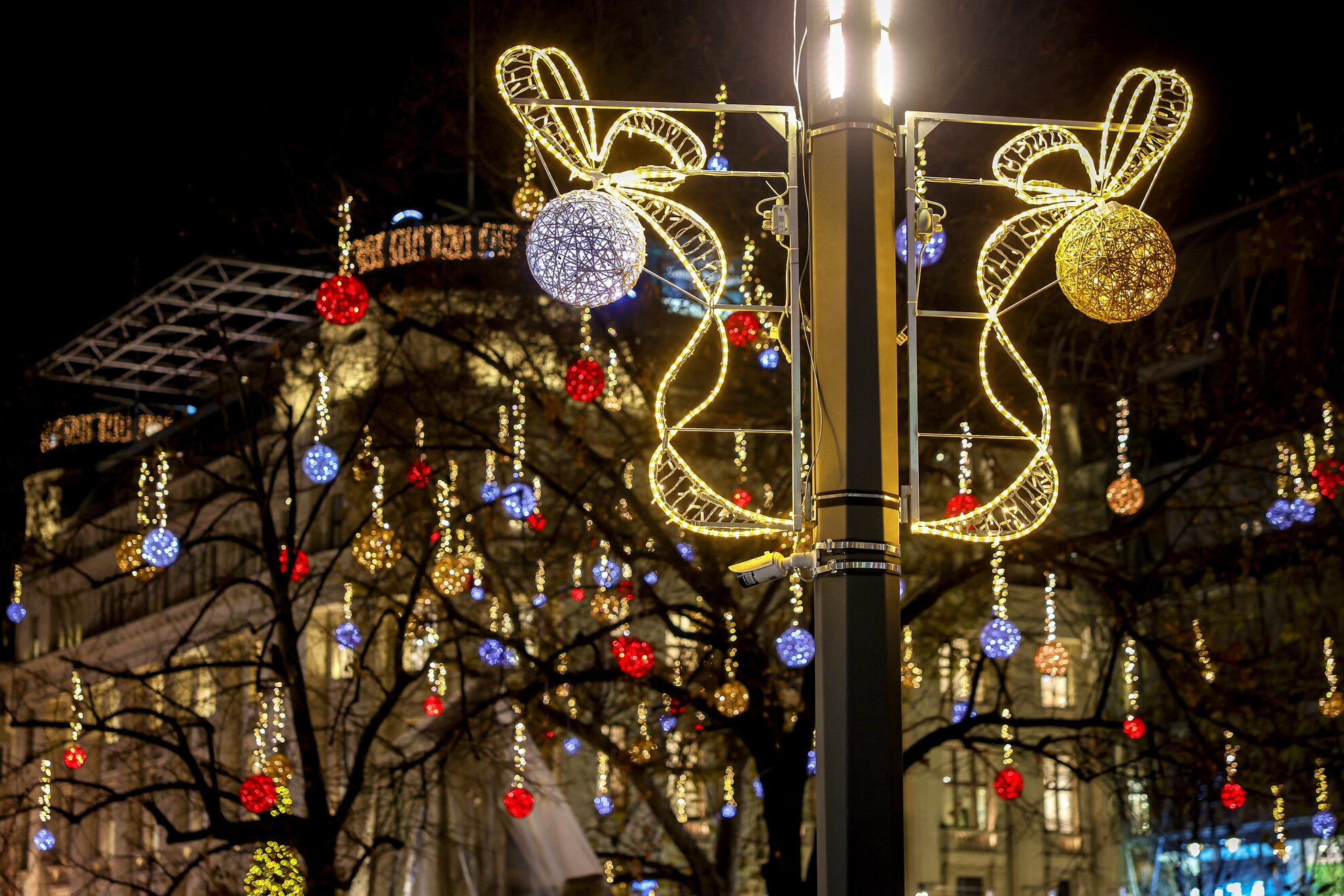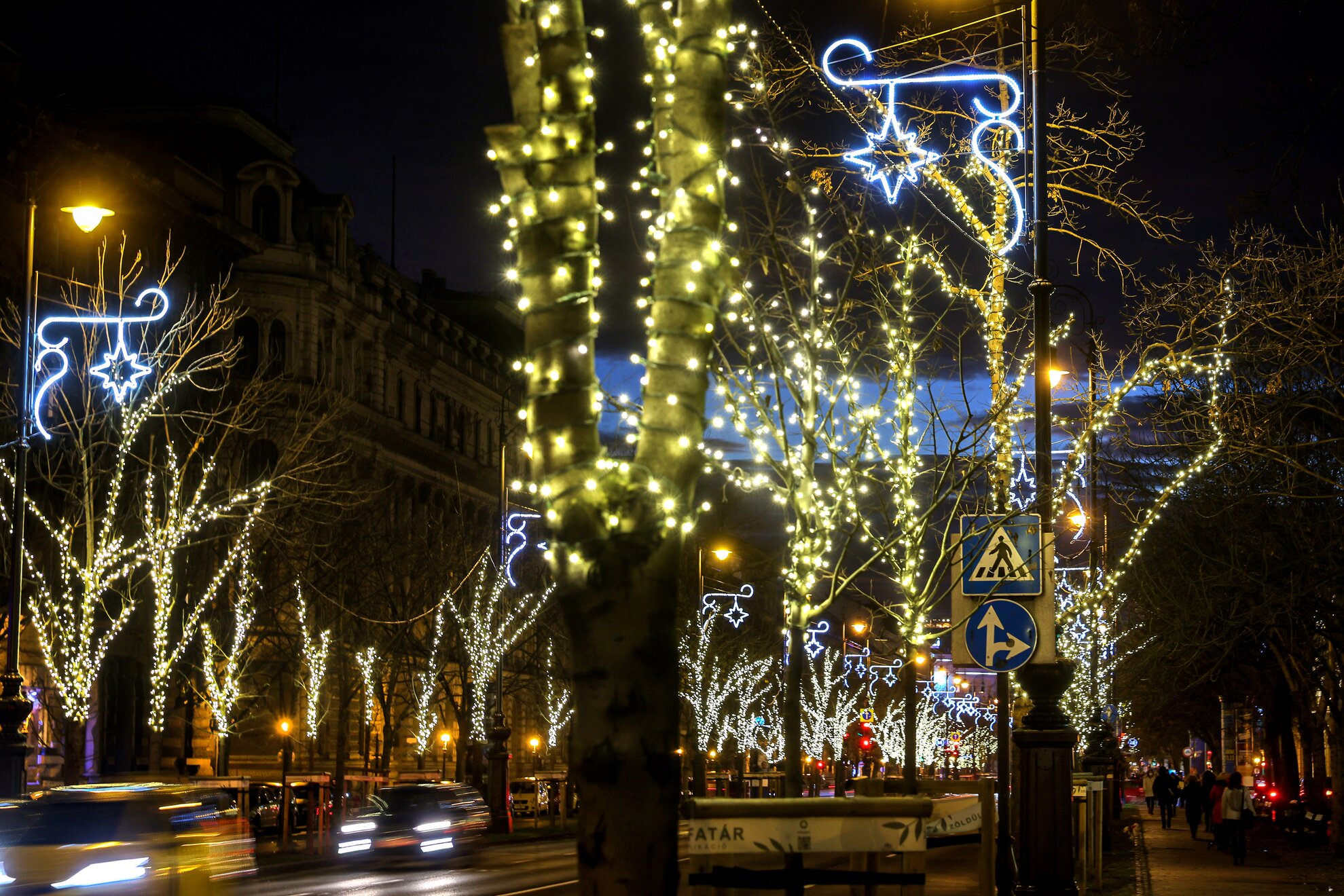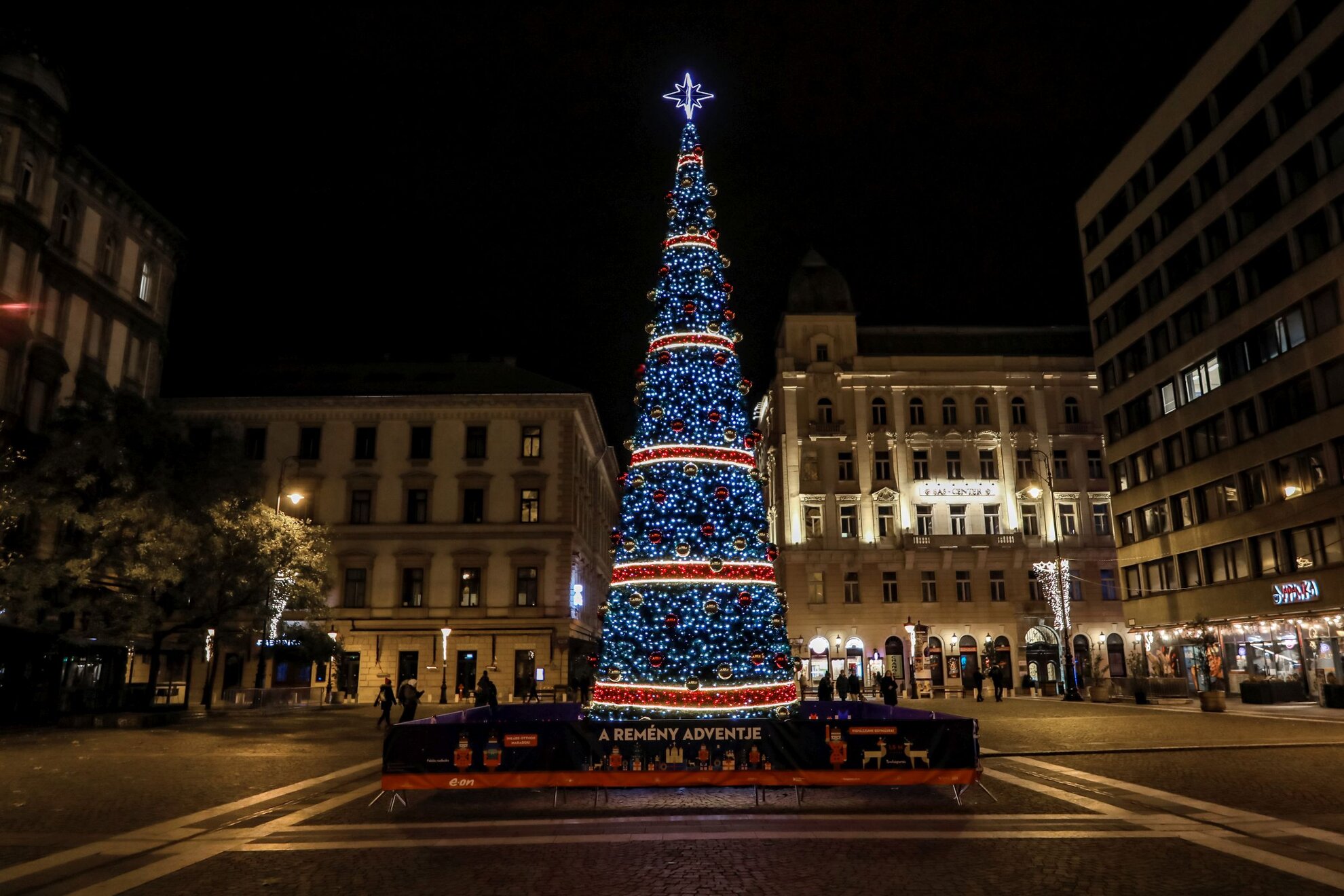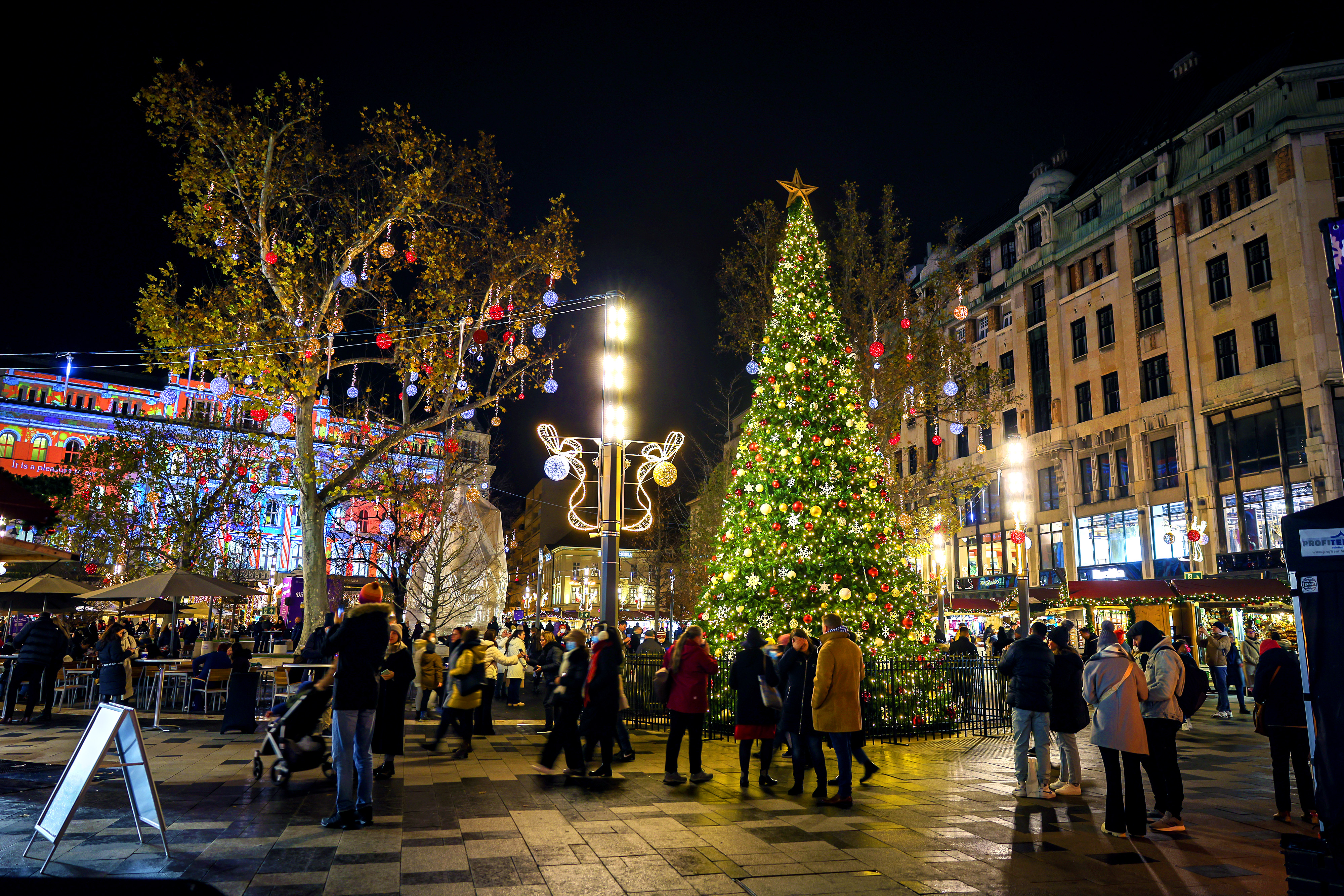So, Christmas in
Hungarian is karácsony, a noun, referring to the
holiday itself. The reason Magyars use say karácsonyt is because we add an
accusative -t, a rare feature of Hungarian grammar. The accusative case is used
when the noun is the direct object of the verb. In this case, you're wishing 'Happy Christmas', and the wishing part is assumed to be there – which we'll come to.
In English, the notion of subject/object is perhaps more clearly understood with pronouns. I changes into the object pronoun me when used
in the sentence. 'I love Santa, Santa loves me.' Simple! And the Hungarian way to indicate the object of an expression
is by adding the suffix -t onto the noun itself.

There are different rules about how to add this -t onto certain other words. We'll keep these exceptions short and sweet as it's Christmas. Sometimes to do this you need a linking vowel if the noun ends with a consonant, like virág, 'flower', plural virágok. So: szeretem a virágokAT – 'I like flowers'.

However, some Hungarian letters require the accusative -t to be applied directly. There is no linking
vowel. These are: -s, -l. -r. -n. -ny, -j and -ly.
And this brings us round to... karácsonyt. The -t suffix makes it the object of the expression, which is why that
tiny letter has been stuck on like glitter to a DIY Christmas card.

One last curiosity. Boldog means 'merry' and is not a verb – so, what gives?
Well, just like in English, there's an assumed verb hiding in there somewhere: ‘Have
yourself a Merry Christmas’. This verb ‘have’ requires the
object in the Hungarian construction. The greeter is wishing you a merry Christmas.
So, Boldog karácsonyt!, Happy Christmas, and we'll be back ready to party on New Year's Eve.





